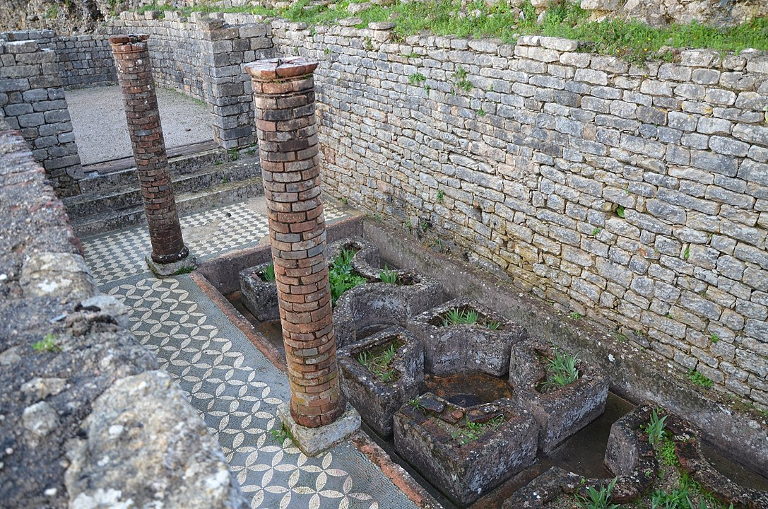The problem with the recent IPCC report is that it is still talking about ‘average’ changes over the earth, discussing what might happen decades from now as a result of increased rate of change. Even if the message is labeled “code red” or urgent, it is still understating what is already happening. We continue to flog a dead horse; the ‘dead horse’ being the fact that scientists are still trying to convince people that climate change is happening and our situation is getting worse. People should already accept that this is true. It isn’t the average changes that will happen over the rest of this century that are threatening us. The earth’s climate has already destabilized to the point where abrupt, extreme weather events are already happening. It isn’t my poor diet that will kill me, it’s the heart attack.
It isn’t the average temperature changes or rainfall events that threaten us, it is the abrupt changes, the extremes in weather events that will destroy our homes and communities. The IPCC report is full of graphical evidence that humans have changed earth’s surface, oceans, and atmosphere in ways that will bring about more warming, higher average temperatures, and greater precipitation in some regions and less in others. But this means little to people who have already lost everything to a storm, flood or wildfire. Perhaps the report was meant for policy makers, those who may actually be able to do something…if only we can convince them to do so.
In the face of such dire consequences what is the US government doing to address the threat of climate change? Yesterday we heard news of the first ‘bipartisan’ piece of legislation to pass the Senate in well over a decade. The legislation calls for more than a trillion dollars invested over ten years in hard infrastructure; roads, bridges, and dams along with expansion of broad band access to the internet. I suppose we should be thankful that a small group of Democrats and Republicans can actually work together on anything. It should be obvious, but apparently it isn’t, that Americans mainly use roads and bridges for transportation, and the transportation sector still runs almost entirely on petroleum. If we were going to get serious about climate change, i.e. reducing consumption of fossil fuels (such as petroleum), wouldn’t it make more sense to invest in renewable energy infrastructure as opposed to petroleum infrastructure? Yes, there was money allocated to EV recharging stations (although no mention that they would be powered by solar or wind). There was some money allocated for battery research, which is already ongoing in other countries. The announcement felt more like we were embarking on infrastructure repairs we’ve neglected for decades, and investing in research for which we’ve already fallen behind. Basically we are building ‘bridges to nowhere’ and roads that will ‘take us over a cliff’, because we choose not to do much of anything to actually address reductions in fossil energy use. We are not doing anything to become more resilient in the face of climate change. Every road or bridge we repair can be destroyed by storms or heat waves tomorrow.
The actions of our government clearly support the current carbon emitting, fossil energy dependent, economic system that caused the climate to change. It is clear that our government intends to keep ‘business-as-usual’ going as long as possible rather than actually make any change that could help us. Don’t make changes if they threaten our economic system! Wealthy nations are dependent upon the global transfer of goods and services for our economic livelihood. Even emerging economic powers such as China refuse to reduce coal combustion if it threatens economic growth. Our basic position is we will address climate change as long as we can keep economic growth going. It’s the new Green thinking. Every proposed piece of legislation that reduces carbon emissions by reducing fossil energy consumption is discarded because it is not in the best interest of making profits or collecting taxes. A reduction in carbon emissions will require a reduction in energy consumption. If we consume less energy we make and use less stuff, which will precipitate a reduction in economic activity. There is no way of changing the outcome of this calculation. The reality is it isn’t profitable to stop using fossil energy. It will hurt our economy and it will also hurt those who depend upon it.
Less economic activity also means less taxes collected and fewer funds for government programs, such as social security, medicare, public schools, police departments, and the military. It means fewer jobs, fewer stores. It means few municipalities can afford to repair bridges and roads, build new infrastructure, or implement sustainability goals. The absence of public services means no funds available to help families who have lost their jobs or their home. It means no public hospitals or public health insurance. It means no help recovering from a disaster. It means no government subsidies for agriculture and energy, increasing the cost of producing these goods. Without sufficient revenue governments fail, and it means no one will assist us, protect us, or guide us when we need help, leaving us at the mercy of private companies whose goal is make as much profit as the market will bear.
What the IPCC report didn’t say was that the only way humanity can address climate change is stop burning fossil fuels as rapidly as possible even if it means the collapse of our global economy. It doesn’t tell us that we must slow our current economic engines even more drastically than we did during the shutdown to stop the spread of COVID-19. According to the report we must reach the peak of carbon emissions in four years and this doesn’t include any emissions that result from passing tipping points. The report talks about technological advances to extract carbon from the atmosphere (which aren’t yet available at scale). What the IPCC report didn’t tell us was that it’s already too late to save our current fossil fueled system, and that we need to prepare for the extreme reduction in energy that living on renewable energy will entail. It didn’t tell us to prepare for worsening weather extremes or to try to salvage what we can before it’s gone.
We could have addressed climate change decades ago and made the transition to a smaller, less consuming, renewable economy, but we didn’t. We could have used our time more wisely if we started 50 years ago when we were first warned of the danger, when we had half the population of today, and when more people were living much more frugally. Unfortunately we didn’t and now it’s too late. We have reached the era of consequences. Every nation will have to deal with the consequences of climate change; the abrupt, disastrous weather events. Every nation, community, and person will need to live with limited resources; the wealthy will have a bit more advantage but eventually even they will suffer the consequences.
This year we have already witnessed a number of catastrophic 1,000 year weather events. We have seen heavy rain events that destroyed villages hundreds of years old in Germany, Belgium, and the Netherlands. People had never seen water levels so high. A city in China was struck by a 1,000 year rain event when it received a year’s worth of rain in less than three days. We see record breaking heat in the Pacific Northwest, not just a degree or two higher but five to ten degrees Celsius higher. We see severe heat waves exacerbating wildfires in Greece, Siberia, the Western US, and Canada. Across the world, the news is filled with stories of record breaking droughts, wildfires, and flash flooding. We are still struggling with an out of control global pandemic.
When your world has been destroyed what can you do? It’s too late for adaptation, because what you had is gone. It’s too late for emergency preparation, because the emergency has already happened. If there is no one to help you, if the criminals threaten you, what can you do? You leave. You take what you can carry and begin to walk towards someplace else, hoping there will be something ahead. This is the story of humanity. We’ve walked away many, many times when the lakes dried up, the soil turned to dust, or when the animals we hunted disappeared. Humans have always become migratory when resources or population pressure forced us to move on. We moved on until we found a place with food, water, and shelter. We stay in one place only as long as we can survive. Once we must move there is no way to stop the migration of humans searching for resources, because staying will mean starvation and death.
There is likely no form of large government control that will remain in power after the collapse of our current economic system. Large, complex economies and the systems of government that maintain them are highly dependent on a constant flow of money and resources from which it can extract what it needs to survive, protecting its power. Fossil energy brought humanity the greatest power to exploit resources in history. We’ve created a vast, interconnected global economy and grown our population to more than 8 billion people. We built vast networks connecting cities across the globe, changed life within the oceans, altered the chemistry of the atmosphere, and started the sixth great extinction event. Our science and technology created the weapons with which we’ve dominated life, in the process polluting ecosystems with toxins that now threaten all life on earth. In the absence of fossil energy the era of human control over the earth is coming to an end. In the absence of fossil energy humans will once again need to live within the natural carbon budget, depending on soil fertility to grow food, prairies to feed herds of herbivores, forests to harvest wood, bodies of water to travel and fish. It may take thousands of years for these systems to recover from climate change, but in the absence of fossil energy and far fewer humans natural systems will eventually recover. Those who might survive this self-created thinning of the human herd will be those who can still use the resources at hand to make the things needed to survive.
The end of our civilization will not happen overnight, because the sheer size of our global economy gives it a great deal of momentum, and there are billions of humans determined to keep it going. It will likely take decades, but doubtfully the 400 to 500 years that it took the Roman Empire to fall. I wonder how long it took Romans to recognize their empire had failed and to move on? I am fairly sure there will be small groups of people surviving in places where natural ecosystems are less damaged or in places beginning to renew (likely from the assistance of humans who know how to do this). It will be perhaps several thousand years before its possible to know if the human species survives the sixth great extinction. If we don’t survive it may be thousands or even millions of years before another intelligent species uncovers evidence of our ruins. This is what the IPCC report should have told you.
Teaser photo credit: Sections of a residential domus with water gardens. By Carole Raddato from FRANKFURT, Germany – Conimbriga, CC BY-SA 2.0, https://commons.wikimedia.org/w/index.php?curid=33004963






